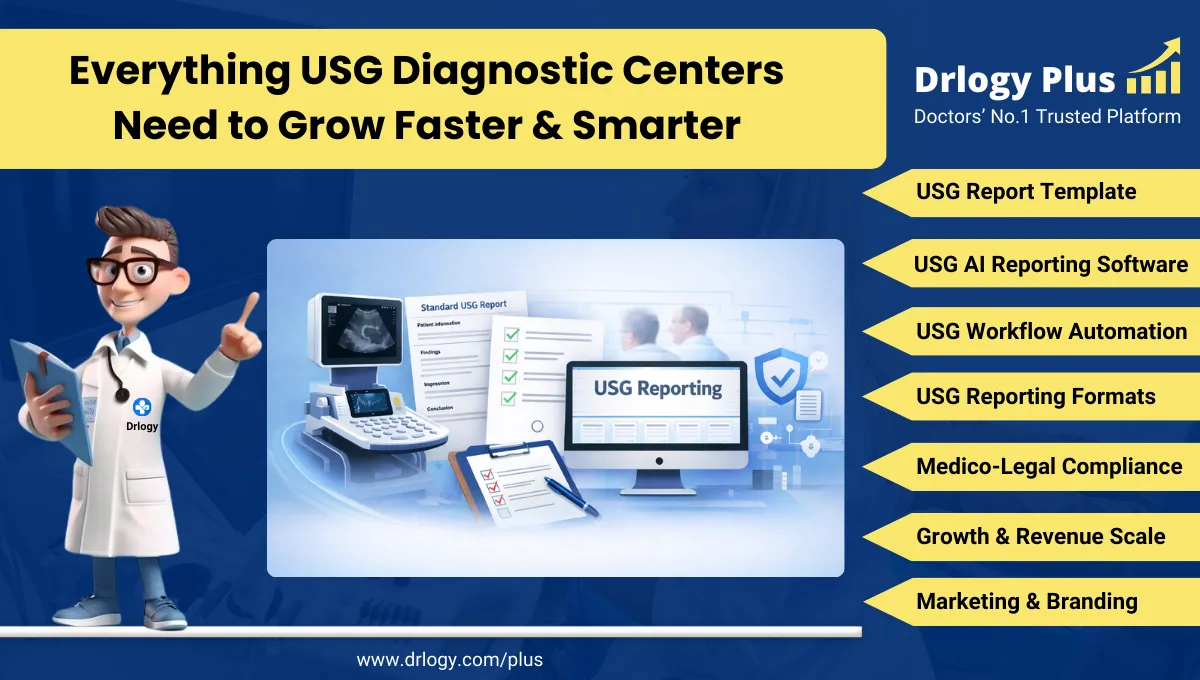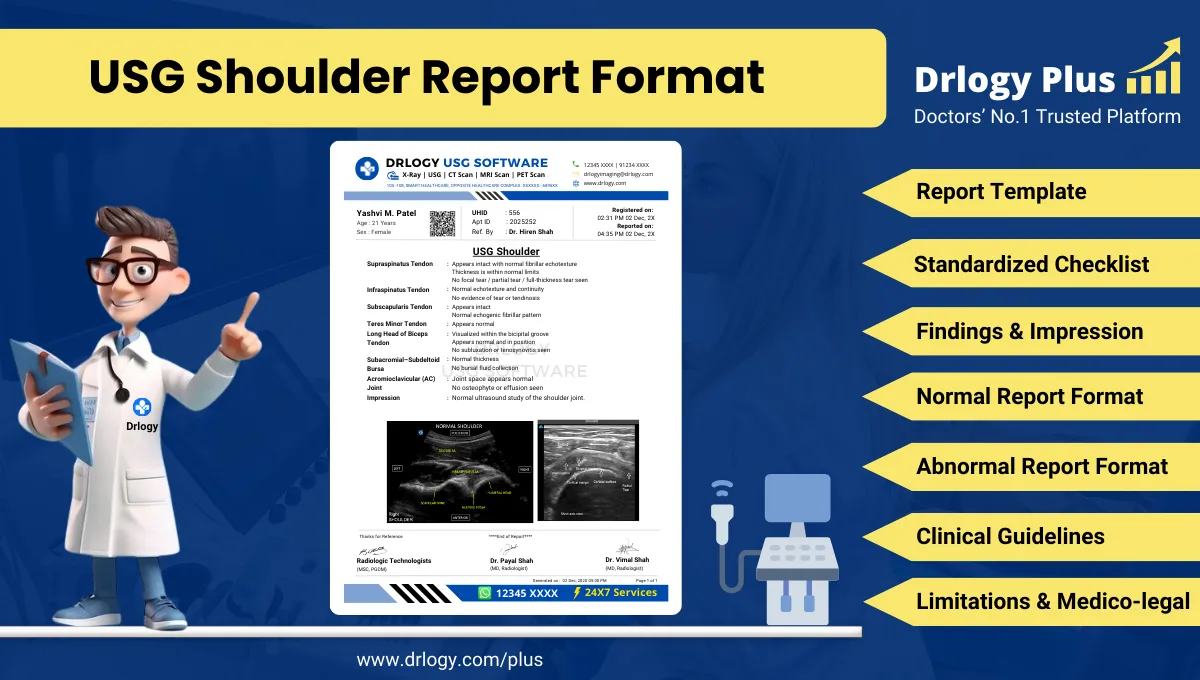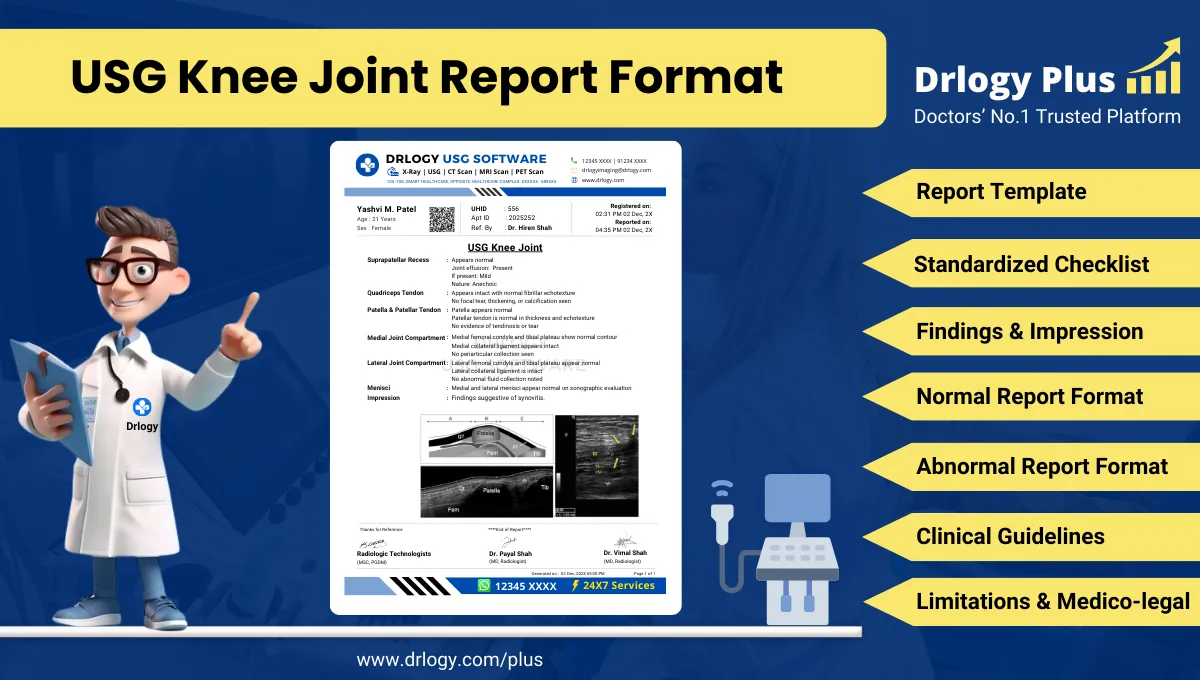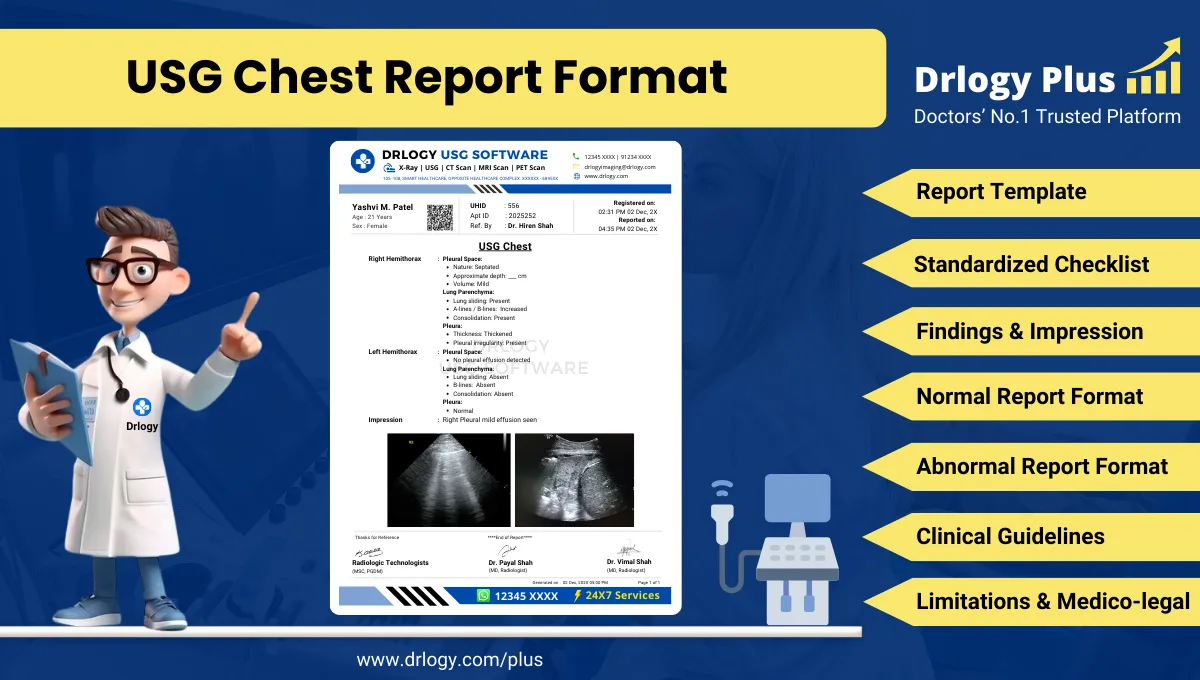

Drlogy
Healthcare organization
Don't Buy HMIS Without These 16 Hospital Management System Features
Building an efficient Hospital Management Information System (HMIS) requires incorporating essential features for seamless healthcare operations.
Recommended
Drlogy Hospital Management System Features guide offers comprehensive 16-step assistance in optimizing hospital operations and data management.
Top 16 Hospital Management System Features You Must Have in HMIS
Here are Top 16 Hospital Management System Features You Must Have in HMIS.
1. HMIS
- Select a Hospital Management Information System (HMIS) that integrates seamlessly with your hospital's existing infrastructure and meets your specific requirements.
- Ensure the HMIS offers comprehensive features for managing various aspects of hospital operations efficiently.
- Evaluate the HMIS vendor's reputation, reliability, and customer support to ensure long-term satisfaction.
- Consider scalability and future growth potential when choosing an HMIS to accommodate your hospital's evolving needs.
- Prioritize user-friendly interfaces and robust security measures to safeguard patient data and streamline workflows.
2. Outpatient Department OPD Management
- Look for OPD management modules that facilitate appointment scheduling, patient registration, and queue management to optimize outpatient services.
- Ensure the system supports real-time tracking of patient visits, consultation history, and prescription management for efficient OPD operations.
- Evaluate features for generating electronic prescriptions, managing diagnostic tests, and integrating with billing systems seamlessly.
- Prioritize customizable templates for medical records and consultation notes to enhance clinician efficiency and patient care.
- Choose OPD management software with reporting capabilities to track patient flow, revenue generation, and performance metrics effectively.
3. Inpatient Department IPD Management
- Select IPD management software with features for bed allocation, patient admission, and discharge planning to optimize inpatient care delivery.
- Ensure the system supports electronic health records (EHR) management, nursing assessments, and medication administration for comprehensive patient care.
- Evaluate modules for managing ward rounds, patient transfers, and surgical scheduling to enhance operational efficiency and patient safety.
- Look for integration capabilities with laboratory, radiology, and pharmacy systems to streamline diagnostic and treatment processes.
- Prioritize IPD management solutions with robust analytics and reporting tools to monitor bed occupancy, length of stay, and clinical outcomes effectively.
4. ICU (Intensive Care Unit) Management
- Choose ICU management software with specialized features for monitoring critical care patients, tracking vital signs, and managing ventilator settings.
- Ensure the system supports remote monitoring capabilities and alerts for timely intervention and patient safety.
- Evaluate modules for documenting ICU procedures, medication administration, and nursing assessments to ensure comprehensive care delivery.
- Look for integration with bedside devices, electronic medical records (EMR), and pharmacy systems to streamline data flow and clinical workflows.
- Prioritize ICU management solutions with customizable dashboards and analytics for real-time monitoring of patient status and resource utilization.
5. Operation Theater (OT) Management
- Optimize scheduling of surgical procedures to maximize operating room utilization.
- Ensure adherence to safety protocols and regulatory standards during surgeries.
- Facilitate efficient allocation of resources such as staff, equipment, and supplies.
- Monitor surgical workflows in real-time for timely interventions and adjustments.
- Integrate OT management with other hospital systems for seamless patient care coordination.
6. Pathology Lab Management
- Select pathology lab management software with modules for sample tracking, test ordering, and result reporting to streamline laboratory operations.
- Ensure the system supports integration with laboratory instruments and automation solutions for efficient sample processing and analysis.
- Evaluate features for managing test protocols, quality control, and accreditation requirements to ensure compliance with regulatory standards.
- Look for LIS (Laboratory Information System) modules with customizable reporting formats, data visualization tools, and decision support capabilities.
- Prioritize pathology lab management solutions with interoperability features to exchange data with EMR, HMIS, and other healthcare systems seamlessly.
7. Radiology Management
- Choose radiology management software with modules for imaging order entry, scheduling, and result reporting to streamline radiology workflows.
- Ensure the system supports integration with imaging modalities, PACS (Picture Archiving and Communication System), and RIS (Radiology Information System) for seamless data exchange.
- Evaluate features for image viewing, interpretation, and annotation to enhance radiologist productivity and diagnostic accuracy.
- Look for tools for managing radiology protocols, dose monitoring, and quality assurance to ensure patient safety and regulatory compliance.
- Prioritize radiology management solutions with advanced visualization capabilities and decision support tools for complex image analysis and reporting.
8. Pharmacy Management
- Select pharmacy management software with modules for inventory control, dispensing, and medication reconciliation to optimize pharmacy operations.
- Ensure the system supports electronic prescribing, medication order verification, and drug interaction checks for patient safety.
- Evaluate features for managing drug formularies, pricing, and procurement to optimize medication management and cost control.
- Look for integration capabilities with EMR, billing systems, and medication administration records (MAR) for seamless data flow and patient care coordination.
- Prioritize pharmacy management solutions with reporting tools and analytics for monitoring medication usage, adherence, and inventory levels effectively.
9. Billing Management
- Choose billing management software with modules for patient registration, insurance verification, and claims processing to streamline revenue cycle management.
- Ensure the system supports billing workflows for both outpatient and inpatient services, including coding, charge capture, and claims submission.
- Evaluate features for managing payment processing, denial management, and revenue reconciliation to optimize financial performance.
- Look for integration capabilities with HMIS, EMR, and insurance payer systems for seamless data exchange and billing automation.
- Prioritize billing management solutions with compliance features for HIPAA (Health Insurance Portability and Accountability Act) and other regulatory requirements.
10. Patient Portal
- Select a patient portal solution that offers secure online access to medical records, appointment scheduling, and communication with healthcare providers.
- Ensure the patient portal supports features for patient registration, demographic updates, and consent forms to streamline administrative processes.
- Evaluate functionalities for viewing lab results, medication lists, and treatment plans to empower patients in managing their health.
- Look for secure messaging features and telemedicine integration options for virtual consultations and remote care delivery.
- Prioritize patient portal solutions with user-friendly interfaces and mobile accessibility to enhance patient engagement and satisfaction.
11. EMR and EHR Management
- Choose EMR (Electronic Medical Record) or EHR (Electronic Health Record) software that meets your hospital's documentation and clinical workflow needs.
- Ensure the system supports comprehensive patient records, including medical history, diagnoses, medications, allergies, and treatment plans.
- Evaluate features for clinical documentation, progress notes, and order entry to streamline care delivery and ensure documentation accuracy.
- Look for interoperability capabilities to exchange patient data securely with other healthcare providers, pharmacies, and laboratories.
- Prioritize EMR/EHR solutions with customizable templates, decision support tools, and interoperability standards to support evidence-based practice and quality care.
12. MRD Management
- Choose MRD (Medical Records Department) management software with modules for record indexing, storage, retrieval, and release to streamline medical records operations.
- Ensure the system supports electronic document management, scanning, and indexing of paper records for efficient storage and retrieval.
- Evaluate features for managing record requests, authorizations, and compliance with privacy regulations such as HIPAA.
- Look for integration capabilities with EMR/EHR systems and patient portals to facilitate secure access to medical records by authorized users.
- Prioritize MRD management solutions with audit trails and version control to ensure data integrity and compliance with record retention policies.
13. Ambulance Management
- Select biomedical waste management software with modules for waste segregation, tracking, disposal, and regulatory compliance to ensure environmental safety.
- Ensure the system supports barcode labeling, manifest generation, and documentation of waste disposal activities for regulatory reporting.
- Evaluate features for scheduling waste pickups, monitoring waste volumes, and managing waste handling personnel efficiently.
- Look for integration capabilities with HMIS and inventory management systems for seamless data exchange and waste inventory control.
- Prioritize biomedical waste management solutions with training modules and compliance alerts to promote staff awareness and adherence to waste management protocols.
14. Biomedical Waste Management
- Ensures hospitals adhere to regulatory standards for proper biomedical waste disposal, minimizing legal risks.
- Promotes eco-friendly waste management practices, reducing pollution and environmental impact.
- Implements protocols to protect healthcare workers from exposure to hazardous materials during waste handling.
- Facilitates proper segregation of biomedical waste categories, enhancing safety and efficiency in disposal.
- Offers tools to track and monitor waste generation, disposal, and compliance metrics for accountability.
15. Online Appointment Booking
- Choose an online appointment booking system that offers a user-friendly interface for patients to schedule appointments conveniently.
- Ensure the system supports real-time availability updates, appointment reminders, and confirmation notifications to reduce no-shows.
- Evaluate features for patient registration, insurance verification, and appointment rescheduling to streamline administrative processes.
- Look for integration capabilities with HMIS and patient portals for seamless appointment scheduling and data exchange.
- Prioritize online appointment booking solutions with mobile accessibility and multilingual support to enhance patient access and engagement.
16. ROI and Budget
- Select a hospital management system that offers robust ROI (Return on Investment) analysis tools to evaluate the financial impact of system implementation.
- Ensure the system supports budgeting modules for forecasting revenue, expenses, and capital expenditures to optimize financial planning.
- Evaluate features for tracking key performance indicators (KPIs), such as revenue cycle metrics, operational efficiency, and patient satisfaction scores.
- Look for reporting capabilities to monitor budget variances, cost-saving initiatives, and revenue growth opportunities effectively.
- Prioritize hospital management systems with built-in analytics and benchmarking features to drive continuous improvement and financial sustainability.
Drlogy Hospital Management System Features Guide For HMIS
Here are 16 Steps Drlogy Hospital Management System Features Guide For HMIS Selection.
| 1. HMIS | 9. Billing |
| 2. OPD Management | 10. Patient Portal |
| 3. IPD Management | 11. EMR and EHR Management |
| 4. ICU Management | 12. MRD Management |
| 5. OT Management | 13. Ambulance Management |
| 6. Lab Management | 14. Biomedical Waste |
| 7. Radiology Management | 15. Online Appointment |
| 8. Pharmacy Management | 16. ROI and Budget |
Summary
In conclusion, implementing a robust Hospital Management System (HMS) like Drlogy ensures streamlined operations and enhanced patient care, paving the way for efficient healthcare delivery.
Explore the complete 16 steps Drlogy Hospital Management System (HMS) guide for comprehensive insights into optimizing hospital operations and patient care.




